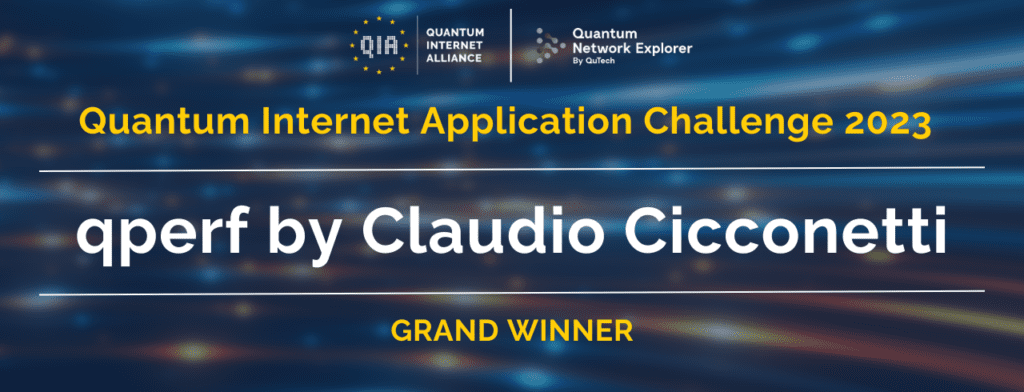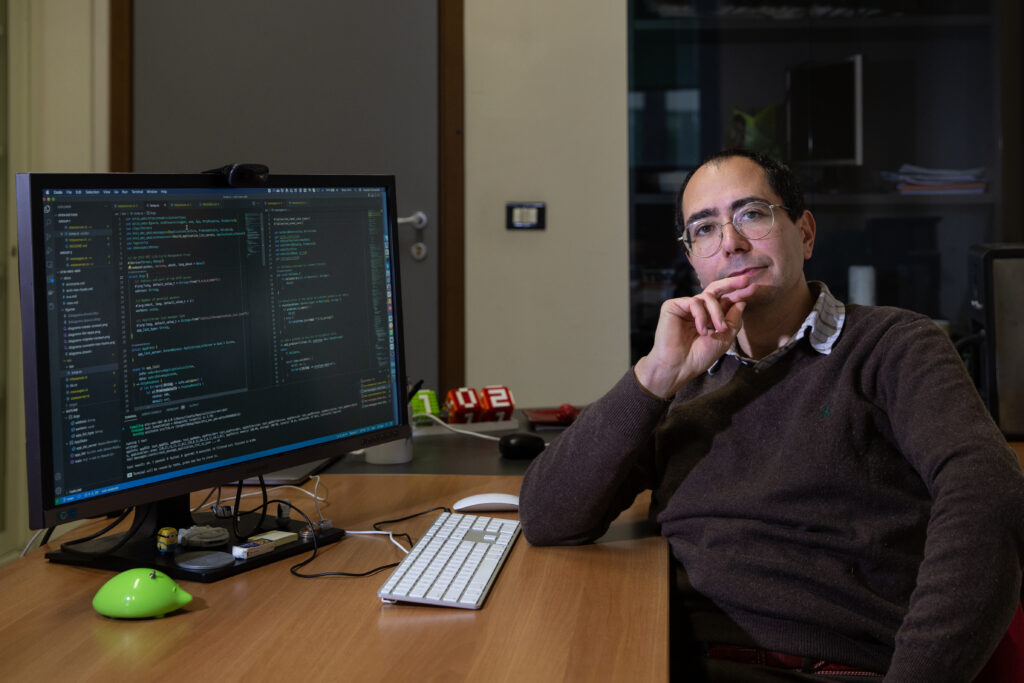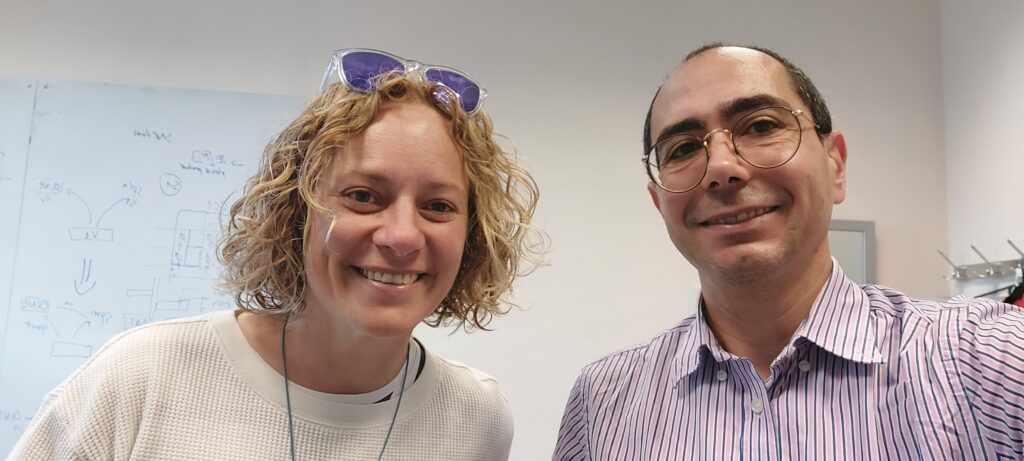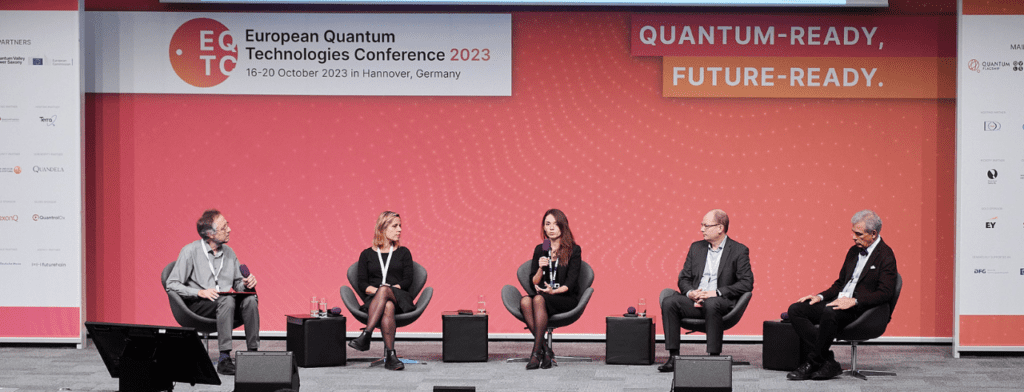21.11.2023Stories
QIA concludes Quantum Internet Application Challenge 2023, names best submission

Winning entry offers tool for quantum link performance measurement
Quantum Internet Alliance (QIA) has concluded the Quantum Internet Application Challenge 2023 and selected “qperf” as the most impressive submission for this round.
The Challenge, a QIA initiative encouraging quantum enthusiasts to take part in shaping the future of the quantum internet, was launched in August to welcome pioneering application ideas that harness the potential of quantum networks.
The winning submission—qperf— was from Claudio Cicconetti, a computer science researcher at the Institute of Informatics and Telematics of the National Research Council (IIT-CNR) in Italy.
About qperf: A quantum link performance measurement tool
qperf is inspired by the classical internet tool iperf which measures the end-to-end TCP (transmission control protocol)/UDP (user datagram protocol) performance.
This tool, as envisioned by the creator Claudio, is to be i) integrated with the quantum routing protocols to optimise path selection/provisioning, or ii) used by the application layer to determine whether the connection quality is sufficient.
qperf proposes to use the swap test on teleported qubits as a metric for the link performance.
The jury found the submission’s code quality impressive. It showcases expertise in utilising a command-line interface and professional project structuring, which includes the separation of utility methods, good docstring documentation and usage of type hints.
While the entry deviated from a conventional use-case framework, it presented an innovative tool supporting quantum internet users.
“The documentation of the project was excellent, it sets the stage of why characterising the performance of quantum links may need to be done in real time. It then properly explains the idea, how to run and how to install the tool,” the jury noted.

About the developer
Claudio holds a PhD in Information Engineering from the University of Pisa, and has a rich career spanning academia and industry. Formerly an R&D Manager at Intecs and a software engineer at MBI, he is currently a Researcher and head of the |Quantum⟩ lab at IIT-CNR. Claudio manages various EU projects, contributes to national initiatives, and has a notable presence in international conferences and journals.
Claudio, a computer science researcher at IIT-CNR, has a long research and professional history in computer science, mainly wireless networking. He shared that during the pandemic, he started to get really interested in quantum technology, especially quantum networking.
“My idea is to leverage on my background in classical networking to introduce a concept to quantum networking that will make us avoid committing the same mistakes in classical networking,” he noted.
The protocol he developed mimics a tool that already exists in classical networks—iperf—which measures the bandwidth in bits per second between any two points, A and B.
However, instead of measuring bit rate, qperf is measuring fidelity, a key metric that quantifies the accuracy and reliability of quantum information transfer. It is important in assessing the quality of quantum communication channels and the effectiveness of quantum protocols.
As part of winning the Challenge, Claudio will have a research visit in one of the three QIA participating partners. He expressed interest in visiting QuTech/Delft University of Technology and work and learn with the research group of QIA Director Stephanie Wehner.
“I am excited at the prospect of my future research visit, which I believe will set a milestone in my career path, because it will be an opportunity to learn from experts in the emerging field of quantum networks,” Claudio emphasised.
Read Claudio's interview sharing his research visit experience at TU Delft
From winning the Quantum Internet Application Challenge 2023 to a collaborative research visit and beyond
A month-long challenge turned into a two-week research visit, and now has the potential to be a long-term collaboration between research groups in Delft and in Pisa. This is what seems to be the story of Claudio Cicconetti, the Quantum Internet Application Challenge (QIAC) 2023 winner, after he joined the QIA initiative in September last year.

Runner-up submission: Quantum Proprioception
Access GitHub – Proprioception
Quantum Proprioception is a protocol that allows two parties to securely determine their relative orientation in three-dimensional space. It (secretly) aligns two people facing in different directions over an arbitrarily long distance.
“The inner workings of the algorithm make it, in some sense, the conjugate algorithm to Quantum Key Distribution,” the developer noted.
The word “proprioception” comes from the sense we have of the orientation of our body parts (also known as kinaesthesia).
This protocol offers potential transformative applications for both industry and society at large, as it lays the groundwork for secure quantum communication and holds promise for advancing quantum technologies with practical applications.
Other noteworthy submissions
BrainQbrain – A quantum brain over the quantum internet
SquidKnit – Circuit knitting with quantum and classical communication using SquiASM
—
The organising team received over 100 registrations to the Challenge, with students, researchers and enthusiasts from all over the world expressing interest on this initiative.
A group of representatives from Delft University of Technology, Technical University of Berlin, University of Parma and SURF served as the jury who meticulously assessed each submission based on originality of the idea, quality of documentation, real-world value, scientific rigor, sophistication of software implementation, and quality of programming.
The Challenge will open again in 2024 to welcome new batch of innovative quantum internet application ideas from the community, and award internship or research visit to the winning entry.
Stay tuned for updates!

